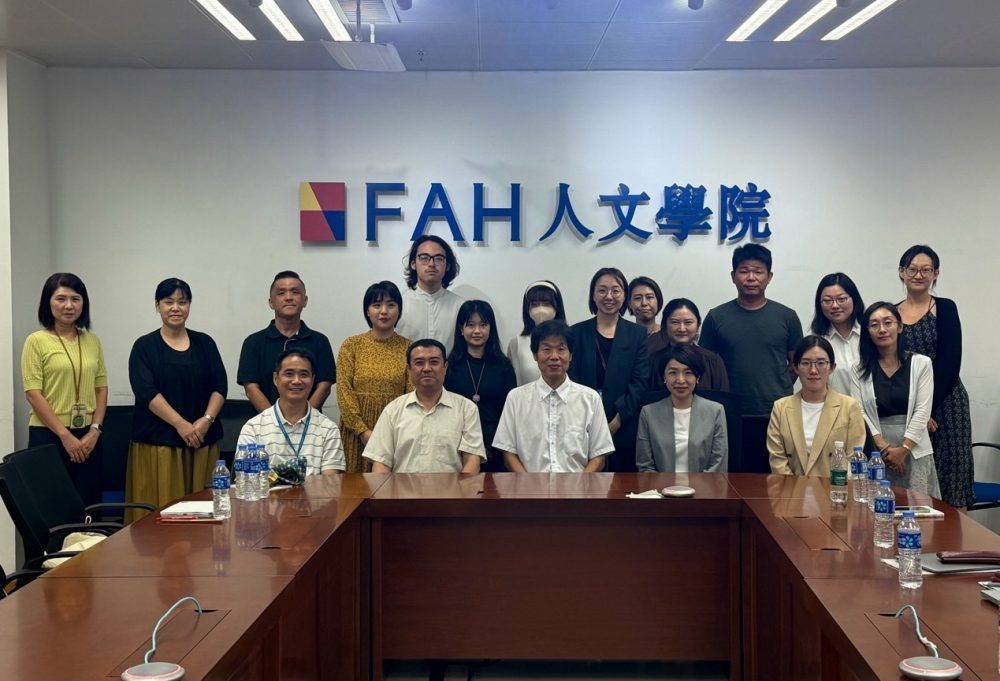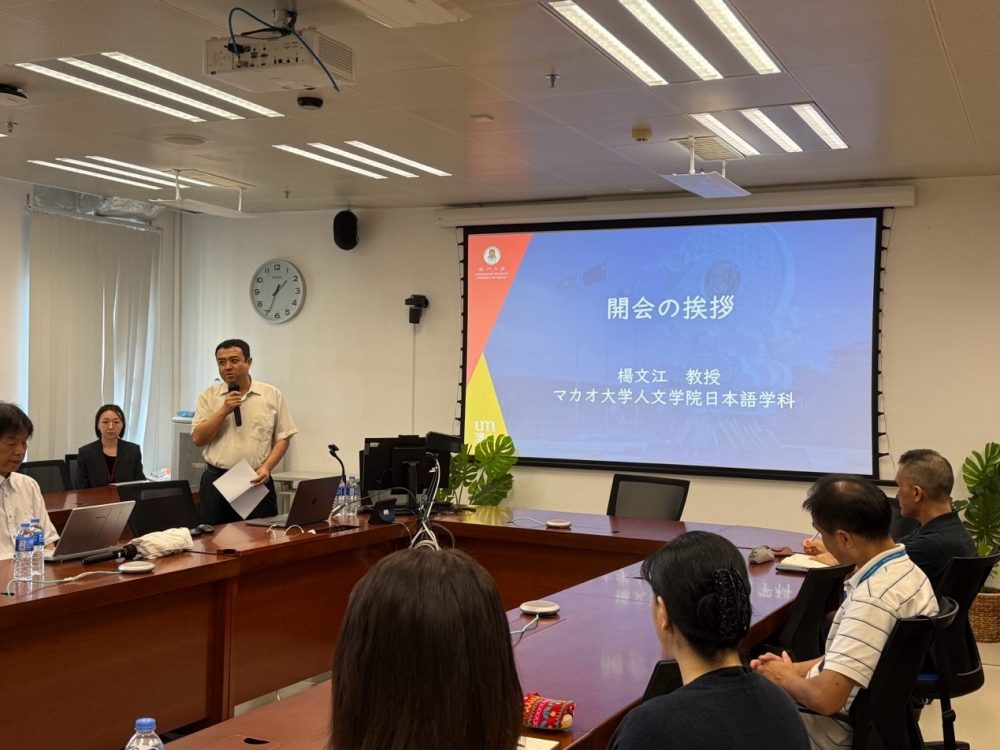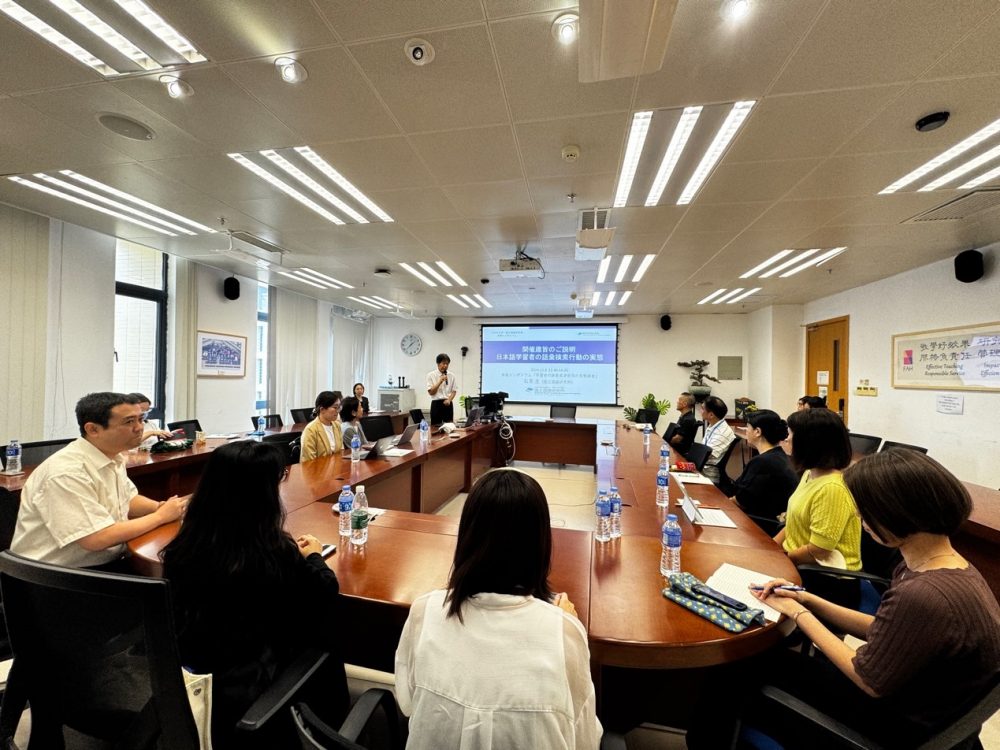On November 3, 2024, the University of Macau and Japan’s National Institute for Japanese Language and Linguistics (NINJAL) jointly hosted an international symposium. The event examined the role of Artificial Intelligence (AI) technology in vocabulary learning, exploring both its applications and challenges. Under the theme of “Investigating Learners’ Use of Dictionary Resources,” experts from the field of linguistics presented research findings on the potential and limitations of AI in language education. This symposium was part of NINJAL’s Institutional Core Research Project: Empirical and Applied Research on the Japanese Language Based on Open Language Resources (JP21K18375). It also marked the first collaboration between the Department of Japanese and a Japanese research institution since the department’s recent restructuring.
The event opened with remarks by Professor Yang Wenjiang, Head of the Department of Japanese at the University of Macau, followed by an introduction to the symposium’s objectives by Professor Kei Ishiguro from NINJAL. The presentations covered a range of topics: Professor Ishiguro shared insights on “Vocabulary Search Behaviors of Japanese Language Learners,” examining how students search for vocabulary in real-life settings; Professor Li Yuzhe (University of Macau) presented on “Can Generative AI Become a Dictionary? — A Case Study of Japanese Language Learners in Macau,” discussing the potential for AI tools in vocabulary learning; Researcher Ayako Sano (NINJAL) shared her findings on “How to Effectively Use Machine Translation to Enhance Japanese Learning,” analyzing the practical applications of machine translation; and Researcher Tian Ji (NINJAL) explored the motivations and behaviors behind Chinese speakers’ searches for Chinese vocabulary. The symposium presented research on vocabulary search behaviors among Japanese learners from ten universities in eight countries and regions, aiming to identify trends in digital searches and find ways to support learners in enhancing their search skills and learning outcomes.
The Department of Japanese at the University of Macau places great importance on interdisciplinary and cross-border academic collaborations. Going forward, the department plans to hold more international symposiums and academic events, not only to enhance its academic influence but also to provide a global platform for exchanging knowledge in fields such as linguistics and educational technology. These efforts will strengthen the department’s connections and visibility within the global academic community, boost the real-world impact of academic research, and further promote Japanese educational innovation.





